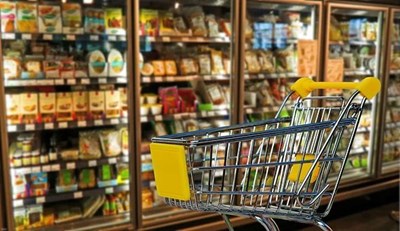
A recent bureaucratic report recommends expanding Vermont's sales tax to include food, groceries, electricity, and clothing to..."help the poor." The Vermont Tax Structure Commission (VTSC) argues that "broadening the tax base" will be easier for government, and more equitable than current exemptions because sales tax revenues will be redistributed "equitably" to the poor.
Sales taxes are inherently regressive. VTSC acknowledges this quite openly (p.22):
Sales taxes are by their nature regressive[.] ... This means that including groceries and other necessities, as we recommend, adds to regressivity. However, we do not make this recommendation in isolation. We note the vital importance of protecting low-income households from bearing any additional burden, and in Chapter 5 we recommend a comprehensive review of the income, transfers, and taxes for low-income Vermonters to ensure that ... no one is bearing an undue burden of taxation relative to their resources[.]
But this monstrous report offers nearly zero policy ideas to "equitably" redistribute the money to the poor, blithely offering instead the following:
In particular, we believe there are more efficient ways to protect low-income Vermonters from the burden of a sales tax on necessities, and more effective ways to promote public goods than exemptions from the sales tax[.] ... A significant portion of the new revenue resulting from the broadened sales tax would be deployed to strengthen and rationalize the distribution system to support lower-income Vermonters, and to make sure that no one is harmed by the tax changes[.] (pp. 11, 12, 40)
But the "particulars" are unstated; the "mechanism to distribute" is unknown (though "important to find"); there is no "distribution system to support lower-income Vemonters." The tax-and-spend doublespeak is, "There are more efficient ways to protect poor people from taxes than exempting them from tax."
In contrast, the Center on Budget and Policy Priorities reports:
Existing credits and rebates designed to offset the sales tax often fail to provide significant relief for many low-income families. To offset fully the sales tax on food for the low- and moderate-income families on which it imposes a significant burden, a credit or rebate should meet two tests. First, it should be available to all poor and near-poor individuals… Second, it should be large enough to offset the sales tax on a family's grocery purchases. (p. 30)
Vermont's latest tax restructuring proposal addresses neither of these concerns -- it offers no substantive plans to fairly redistribute sales taxes on food. But there is endless justification of how this plan will help the government:
By trying to use the sales tax as a tool to encourage community goods, and exemptions from the sales tax for necessities as a tool to protect low-income Vermonters, the legislature puts itself in the position of having to decide what's necessary, and what's good, and what's not. Food is a necessity; is soda? Is candy? Does the legislature want to be in the business of making judgements about what's necessary if it doesn't have to? (p. 84)
But all things are most definitely not equal — these proposals would create inequities while increasing bureaucratic administration costs. The VTSC paper also advises expanding Vermont's sales tax to education and most services. It draws distinctions among which classes of health care providers will be taxed (much like soda versus celery).
Vermonters tightened their belts under COVID; their state's bureaucracy expanded its belly and is hungry for "broadened revenue streams." The VTSC is optimistic about its amorphous plan:
In general, we conclude that exempting broad categories of necessities is not an efficient way to protect low-income Vermonters from the financial burden of paying a sales tax on necessities[.] (p. 68)
Vermont's Progressive majority consistently transfers money inefficiently from one group to another, always enlarging the government bite. Now it wishes to tax bread to "feed the poor."